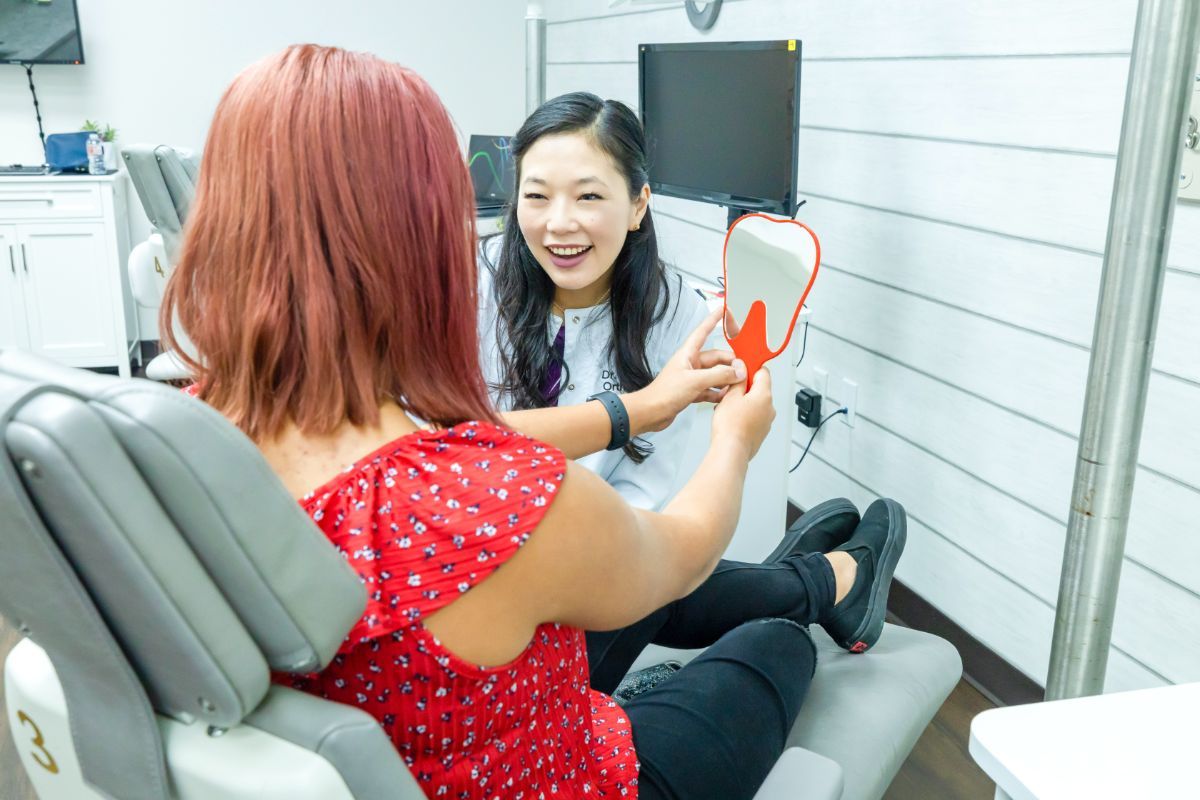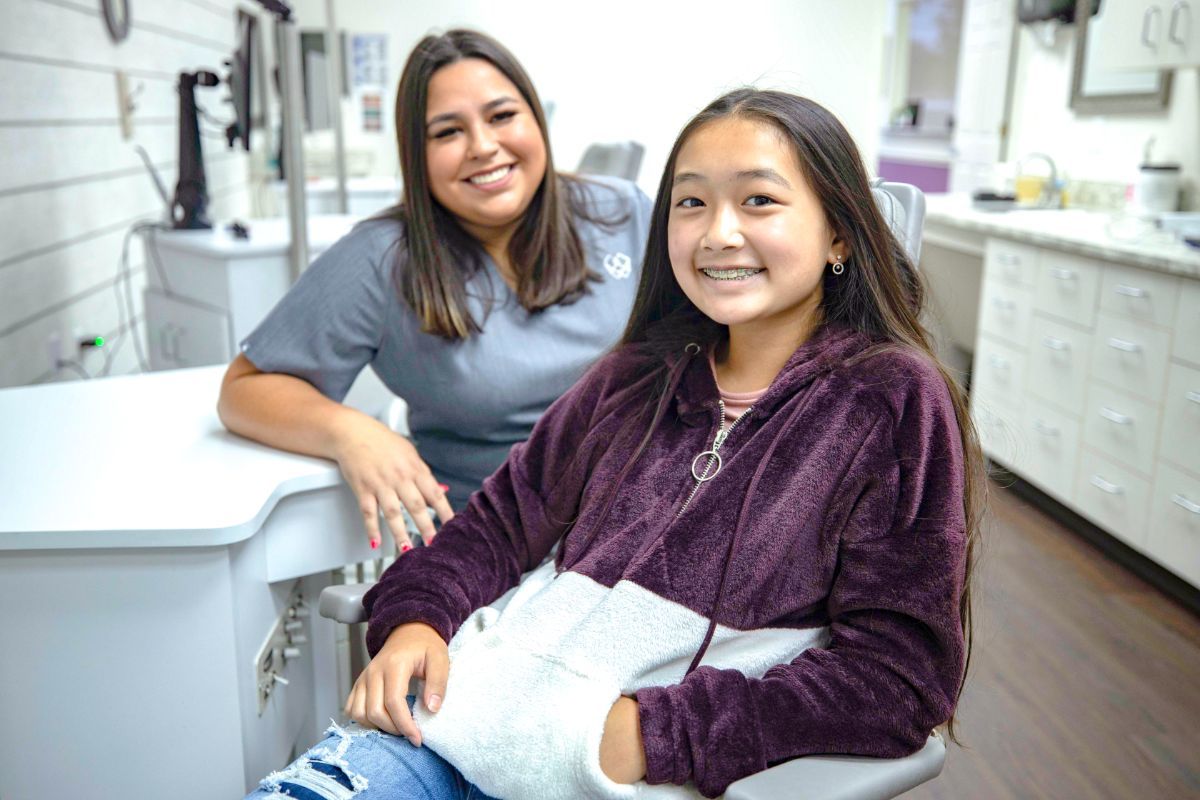It’s pretty common for young children to pick up bad oral habits here and there, but most of them tend to be relatively harmless. They’re certainly not something you’d need to consult with an orthodontist about. There are some oral habits, however, that can negatively affect the way a child’s smile looks, feels, and functions. If unaddressed, they can result in tooth decay and misalignments, among other oral issues. This can impact the way a child eats, speaks, or even sleeps. In turn, they may have a hard time functioning well when they’re at home or school. When it comes to recognizing and treating a child’s misaligned jaw, our team is here to help.
Here at Texas Family Orthodontics, we want your child’s smile to succeed in every way! We’ve seen how certain oral habits have the potential to disrupt a child’s life, which is why it’s important to address them early. But how do you know which of these habits are an issue? What can be done about it if you do discover a destructive habit? Our expert team is here to help! Let’s take a look at the bad habits we see most often in our San Antonio and Windcrest offices and discuss how we can help you get things back under control. Keep reading to learn more!
Thumb and finger sucking
This is one of the most common childhood habits we encounter. Thumb and finger sucking happens most frequently in the infant and toddler years, but it can persist throughout childhood and even adulthood. If it’s left untreated over a long enough period of time, thumb and finger sucking can cause oral issues like:
- open bite of the front teeth
- flared upper incisors
- tipping of the lower incisors
- misalignment of the future permanent teeth
- deformities of the roof of the mouth
Any of the above issues can range from mild to serious, depending on the severity of the habit and the way a child positions the thumb or finger in their mouth. Without treatment, the appearance of the teeth may suffer and damage could occur beneath the gums as well.
Lip sucking is a similar habit, although it’s not quite as common as thumb or finger sucking. While it usually results in nothing more than chapped or inflamed lips, a serious habit could cause the upper front teeth to flare out or the lower front teeth to tilt towards the tongue. Eventually, these teeth may lose the ability to touch when the mouth is closed.
Chewing on various objects
Many of us find ourselves crunching ice or gnawing on our fingernails when we’re bored or need a distraction. Kids do the same thing! While it’s not unusual to chew on objects like ice, pens, and other items, this habit has the potential to be destructive. For example, a child who bites their nails may experience chipped enamel, cracked teeth, or irritation of the soft tissue inside the teeth. This particular habit also gives bacteria on a child’s hands easy entry into their mouth. Now more than ever, it’s important to curb any habits that can increase the risk of infection.
If you have an older child who is prone to chewing on things or biting their nails, you can try offering sugarless gum to help them focus on something less damaging. Younger children that can’t yet have gum may respond well to a healthy snack that has a satisfying crunch, like carrots, celery, or apple slices (which are also good for their oral health!)
Teeth grinding
Teeth grinding, also known as bruxism, is relatively common, especially in younger children. It can be frustrating for those who have to hear it as well as those experiencing it! Most kids and preteens outgrow it eventually, but it can cause problems if it continues. This is evident in the way the grinding action wears down the enamel of the teeth, which can damage the tooth, disrupt sleep, and cause other physical symptoms like headaches, earaches, and jaw pain. There are many possible causes for bruxism, but it’s frequently seen in children with bite and alignment issues. Correcting these malocclusions with orthodontic treatment from Texas Family Orthodontics can be really beneficial!
Get an expert opinion with early orthodontic evaluations
At Texas Family Orthodontics, we encourage parents to help their children develop good oral habits, like brushing and flossing effectively and regularly. But it’s also important to identify and address bad habits! One way you can do this is by scheduling an early orthodontic evaluation, something the American Association of Orthodontists and Dr. Vo recommend for all children by the time they’re 7 years old. By this age, a child’s mouth has developed enough that their bite can be assessed by an experienced orthodontist, along with the front-to-back and side-to-side relationships. This is essential for recognizing bad habits that can affect your child’s teeth.
Some parents worry that this will lead to orthodontic treatment right away, but we only recommend this in a small percentage of the younger patients we see in our San Antonio and Windcrest offices. That said, these early evaluations are still very valuable, as they allow us to monitor a child’s oral development as they grow. This means we can catch any potential issues that may lead to more serious problems, whether now or in the future. Beginning treatment at the most opportune time gives children the best chance at a lifetime of healthy smiles!
Beat bad oral habits with Texas Family Orthodontics
Our Texas Family Orthodontics team has many years of experience creating beautiful, healthy smiles. Dr. Vo has been educated in correcting misaligned teeth and other dental issues, and she can successfully assist you in recognizing bad habits that can affect your child’s teeth.
When you schedule a free consultation for your child at our San Antonio or Windcrest offices, Dr. Vo will examine their mouth and discuss any concerns you have. She will also go over their medical and dental history. The customized treatment plan she builds for your child will also include any destructive oral habits the child has and include ways to correct or eliminate them.
If your child needs some help breaking a bad oral habit, get in touch with us today and schedule a FREE consultation with one of our two convenient locations! We’ll help them take the first steps toward a healthier, happier smile.
 Free Consult
Free Consult


